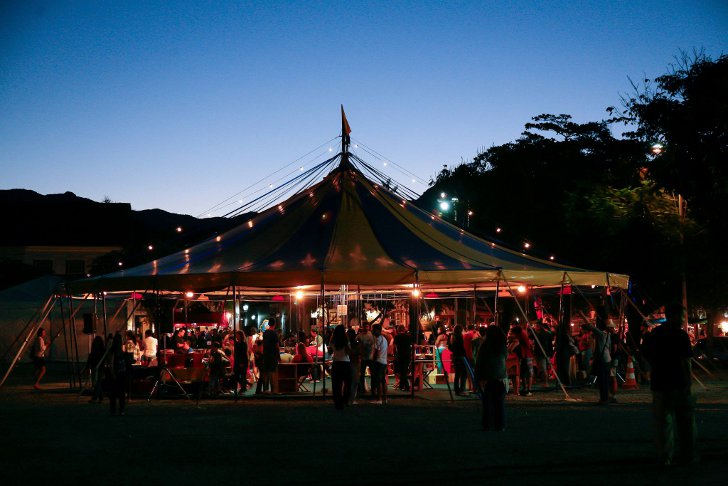The Paraty International Literary Festival was founded in 2003 and has been held every summer since. The festival was created by Liz Calder, English publisher and book editor who lived in Brazil for several years and served as a literary agent for several Brazilian authors. She modeled the event after the famous Hay Festival of Literature & Arts held in the Welsh town of Hay-on-Wye. Today, FLIP is one of Brazil’s two major literary events, the other one being the São Paulo International Book Fair.
FLIP (sometimes stylized as Flip) runs over five days and offers an extensive program guided by the festival’s key principles: originality, informality and intimacy. The main program includes meeting with authors in the Authors’ Marquee, writing workshops, lectures, discussions, and other events and activities for visitors of all ages and backgrounds. Every year FLIP honors an individual author from Brazil. Past featured authors include Vinicius de Moraes, Clarice Lispector, Jorge Amado, Gilberto Freyre, and others.
Alongside the main program, the Paraty International Literary Festival hosts a series of special programs for children and youth. For example, Flipinha is a literary festival for children where young readers can meet writers and illustrators, participate in creative workshops and other activities, and relax with a book in a special space. This program was launched in 2004 to encourage reading and spread knowledge and culture.
Another special program is FlipZona. Launched in 2009, it is an educational, cultural and technological initiative for young people designed to encourage reading and cultural production. The program hosts a series of academic and practical activities at local schools during the academic year.
Although FLIP is first and foremost dedicated to literature, it also showcases other forms of art in its FlipMais program. It makes literature, theater, music and cinema come together in a series of free events held in a number of venues throughout the city of Paraty.
In 2020, the event was held online due to the coronavirus pandemic.

Photo: Nelson Toledo




